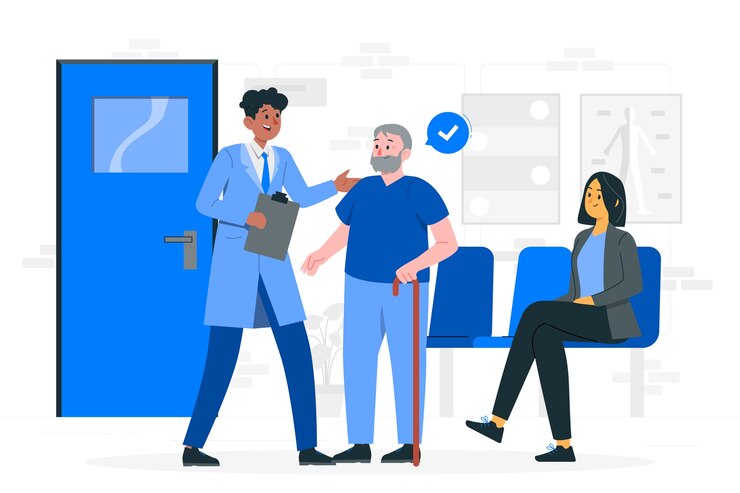Making sure your safety through occupational health screening
Occupational health screening confirms workers’ psychological and physical well-being to ensure that they are suitable for their occupations. Many jobs need a lot of hard labour, machinery, or risky environments, all of which may be harmful to workers. Workers must undergo health examinations before beginning their employment to guarantee their safety. People are protected, and the organization continues to function without any problems.
What are the Implications of Occupational Health Screening?
Through occupational health screening, businesses can determine whether or not a prospective worker is suited for the position. To physically lift big things, a builder has to be in good shape. To safeguard workers, screening is required for jobs that include dangerous materials. This technique promotes productivity, minimizes the number of incidents that occur in the workplace, and checks for health.
Examples of Occupational Health Screenings That Are Commonly Used
Job-specific examinations are included in workplace health checkups. Examples of tests include:
• Evaluation of the Hearing
The audiologist will perform a hearing examination toto determine the degree of hearing sensitivity at various frequencies. This exam is beneficial for employees who work in loud workplaces and are at risk of losing their hearing.
• Pressure Measurement of the blood flow
When it comes to preventing heart disease and strokes, a simple test for hypertension may be of great assistance.
• Examinations of the Respiratory System
A lung function test is used to diagnose chronic obstructive pulmonary disease (COPD) and asthma. People exposed to dust, fumes, or chemicals must have it.
• The use of biometric methods
Measurements of height, weight, body mass index (BMI), cholesterol, blood sugar, and thyroid function are all components of biometric screening. It describes the health of the workers.

Analysis of Urine
This test may detect renal disease, urinary tract infections (UTIs), and diabetes. It could be useful, especially for vocations that require a lot of physical exertion.
Assessment of the Musculoskeletal System
It is essential for jobs that require a lot of physical exertion to do a Musculoskeletal Assessment, which analyzes the condition of the bones, muscles, joints, and other relevant components.
• Evaluations of Capacity for Work
The purpose of the Fitness for Work Test is to determine whether or not a person is capable of doing office chores such as lifting weights or standing for an extended period.
• Evaluation of the Patient’s Mental Health
An evaluation of mental health may uncover symptoms of sadness or anxiety, both of which may have an impact on one’s performance at work.
• Testing for Drugs
The detection of illicit drugs in the system of a worker to prevent their usage on the job.
The Advantages of Performing Occupational Health Screening
1. Risk Abatement: Occupational health screening helps identify potential health problems early before they become more severe. By addressing health risks at an early stage, businesses have the potential to reduce the number of expensive illness outbreaks, accidents in the workplace, and employee absences.
2. The well-being of employees: Employees are more likely to be pleased at work when they are reminded that their health is important via routine health examinations. It is more probable that highly recognised workers will remain with the organization, which results in increased retention.
3. A decrease in presenteeism and turnover: Presenteeism refers to how ill employees report to work. Clear health examinations would alleviate workers’ guilt about resting at home due to illness. As a result, employee turnover and sickness are reduced.
4. Assistance with Mental Health: Stress and mental disease may be a potential barrier to productivity. Employees who are sad or stressed out might be identified via occupational health assessments. Because of this, businesses can assist with mental health. Workers with mental aid can concentrate and perform more effectively.
5. Increased productivity: Employees who are in good health provide superior work. Workers can be more motivated and interested in their jobs when they care for their physical and mental health. Employees are better able to concentrate and perform effectively when they work in a safe and supportive environment.
Final Thoughts
Occupational health screening is necessary to guarantee that employees can perform their duties securely and efficiently. By evaluating the mental and physical health of their workforce, businesses can reduce risks, enhance safety, and increase productivity. Employee health checkups increase productivity while simultaneously lowering risk. In addition to this, they strengthen the health of workers, which in turn boosts job satisfaction and retention rates. Routine medical examinations ensure the health and safety of workers.

